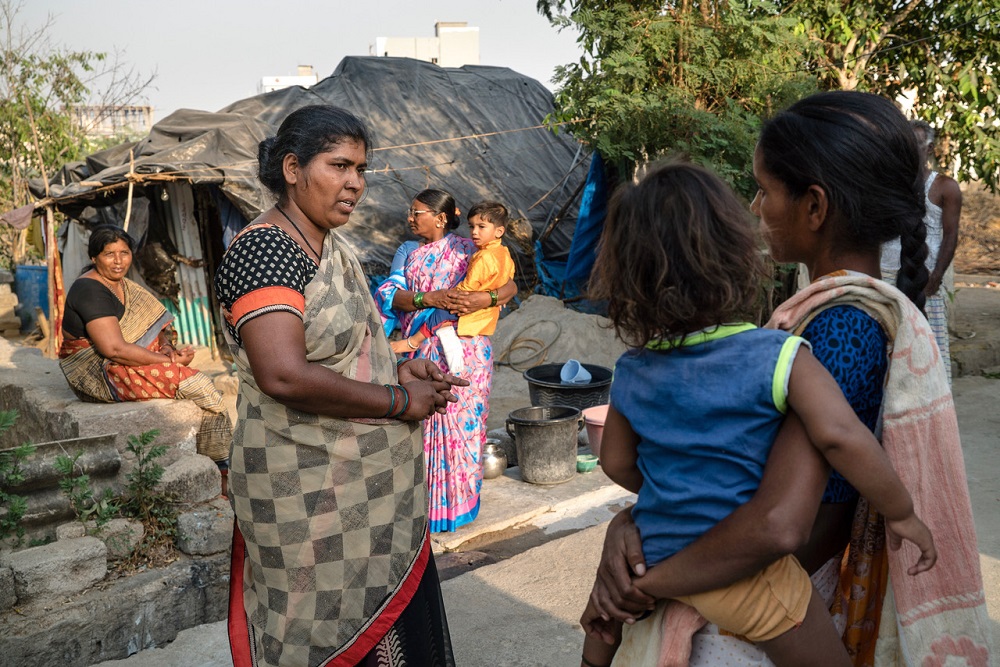
Virtual event brings together key stakeholders to explore the intersection of gender and water and share how its social entrepreneurship approach is addressing the issue
“Some of the most impactful activist movements around the world on water have been driven by women,” said Nisha Biswal, Senior Vice-President of Strategic Initiatives at the US Chamber of Commerce and President of U.S.-India Business Council.
Delivering a keynote address at the “Women and Water: Entrepreneurship and Empowerment through Better Access,” hosted by the New York-based Safe Water Network on November 8, she said, “We are increasingly looking for more women at the political level and at the corporate level to help drive solutions and ensure that resources are targeted in a way that addresses the gender impact.”
The virtual event, which was part of Safe Water Network’s efforts to put women at the forefront of their work in India and Ghana through empowerment, outreach activities, and innovative interventions, brought together the nonprofit’s key supporters, allies, and stakeholders from the United States, India, and other parts of the world.
Read: A personal look at safe water access and gender equity in India (August 17, 2021)
The event highlighted the changing roles of women in the clean water supply chain.
Other speakers included Consul General of India in New York Randhir Jaiswal, President of Indivate Inc (ITC Group) Bhavani Parameswar, and Safe Water Network’s Vice-President of Programs and Partnerships in India Poonam Sewak.
Talking about the efforts of the Indian government, Jaiswal said: “Water is so seminal to our existence. Jal Jeevan Mission, is a multi-stakeholder platform wherein the central government, the state governments, civil society, NGOs, knowledge partners, United Nations, and organizations such as Safe Water Network are all working together to provide water access in India to rural households. If we were to provide millions of women with connections to water, they would be liberated from the drudgery of fetching water from faraway places.”

Read: Safe Water Network calls for collaborative effort to tackle water problem (October 27, 2018)
Summarizing the impact of water on women, Parameswar said: “Water is a human right, but women pay the disproportionate burden of gathering for the household in many water-stressed communities. To attain the goal of empowering the world’s women, we must reduce the weight of water on their shoulders.”
Sewak spoke about Safe Water Network’s unique vision for transforming women from water carriers to water entrepreneurs. “Today, we are still fighting one of the world’s oldest problems: water and women,” she said. “We are working tirelessly to create a model that gives reliable water 24/7 and that includes women working to earn money.”
The approach has been implemented across many communities in India, addressing the barriers to participation, training for long-term success, and unlocking opportunities for women across the socio-economic spectrum. To date, the program includes 548 women station operators and 152 entrepreneurs across 20 states in India. Safe Water Network is supporting the women entrepreneurs through installation of automatic dispensers, remote monitoring for maintenance, and rolling out digital contactless payments.
Read: Indian American Nisha Chakravarty joins Safe Water Network as CFO (June 15, 2020)
Safe Water Network’s CEO Kurt Soderlund in his closing remarks said, “Gender inclusion and empowerment has been a key priority for our organization since inception. The engagement of women in this work is critical for health and livelihoods. As we advance this agenda, we welcome the continued engagement of key stakeholders, governments, other implementers, and local leaders.”



